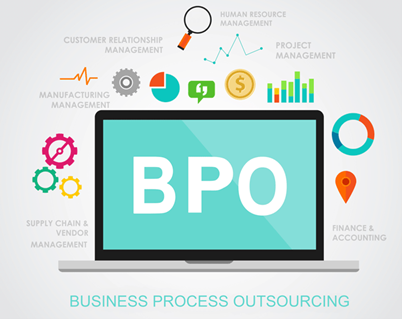The world keeps on altering from natural disasters to terrorist attacks, the outbreak of pandemics and wars, economic spins, etc. Despite their unpredictable and sometimes terrible natures, we continue to see resilient innovations and technological developments that keep the world countering these challenges. These situations keep creating a compelling need for remote services and solutions.
Persons in locations where new jobs are rapidly being created are thrilled about the opportunity to apply their hard-earned and high-value skills. Others who have their line of work disrupted because their jobs have been outsourced or subcontracted to third parties especially overseas for some reasons including cost-cutting purposes, have justifiably denounced offshoring (the relocation of a business process from one country to another) as a risk to their way of life.
However, business process outsourcing (BPO) has become challenging and of a great deal of attention recently, especially in our part of the world. It has emerged as one of the leading business and economic issues of our time, solving unemployment-related problems.
BPO Market
Business process outsourcing (BPO) is simply the movement of business processes from inside the organization to external service providers. You may know it as simply outsourcing. It often includes shifting work to international providers and exporting services. When a business utilizes BPO, it finds an outsourcing company that can provide subcontracting services for the specific business function the company wants to outsource. Let’s say a company wants to outsource its cybersecurity risk assessment. The company must find an outsourcing company that can ensure cybersecurity risk assessment of its specific products or business. Call centers are a type of BPO. For example, an organization may outsource its customer service to a call center. The same organization might use BPO to outsource payroll, accounting, and similar administrative tasks.
BPO has significantly developed, as companies see the benefit in reducing costs, improving efficiency and customer service, and enabling high growth while working with limited resources. The global business process outsourcing market was valued at USD 245.9 billion in 2021 and to reach US$273.3 Bn in 2022, it is projected to expand at a compound annual growth rate (CAGR) of 9.1% from 2022 to 2030, targeting a US$620 Bn mark (according to a report by factmr.com). The market is driven by factors such as the increasing focus of organizations on improving efficiency and business agility, decreasing operating costs, and emphasizing core competencies to survive the constantly changing business dynamics.
The growth prospects in BPO are great and have shown a lot of promise. This industry has expanded to include automation and software development solutions, document and information management, inbound and outbound call centers, telemarketing, email support, technical support services, HR recruiting and staffing, bookkeeping, payroll processing, financial analysis services, medical and healthcare services, bookings, and more. IT and telecommunications account for over 57% of the total BPO market value.

Source: Grand View Research
Today, leveraging BPO enables companies to outsource and optimize business-critical tasks, so that they can focus on their core competencies. Several organizations are increasingly focusing on reducing the cost of conducting business for accessing global resources to meet the growing industry demands. These factors have encouraged the adoption of BPO services across several organizations that focus on emerging technologies and technological trends, such as Artificial Intelligence and cloud computing for driving business efficiency. In 2020, the impact of the COVID-19 pandemic also increased the demand for standardized platform services that enable BPOs to resolve complex business processes, creating avenues for market growth.
Even though firms from many countries are specializing in various business processes and exporting services, there are other international countries well-positioned to deliver BPO services with their complex economies. The Philippines is known for its Administrative BPO services; the United States is known for its Analysis and Creative services; Mexico and China are known for their Manufacturing and Technical services, and India for its Engineering and Technical BPO services. Similarly, Africa as a continent and Ghana as a destination situated well for technological advancements is at an advantage in focusing and leveraging on these possibilities.
How the Internet Revolutionized BPO
With most industries, the Internet has been a game-changer for BPO. It expanded the possibilities for BPO, enabling companies to outsource IT services, accounting, document and information management, transcription and translation, data entry and processing, invoicing, and many other processes that are critical to the day-to-day operations of a business.
As old as the Internet is, digital transformation is changing the face of business and organization activities, processes, and capabilities from an analog backbone to digital. Information and communication have moved from physical paper to digital formats. From floppy disks to compact disks to the cloud, the Internet has radically changed how companies gather or collect, store, process, and share data. Organizations have since been gaining a competitive advantage, reducing costs, and improving customer service by outsourcing operations that are not key to their core businesses by engaging with BPO companies.
Some Factors Driving the Demand for Business Process Outsourcing
The shift of focus from dominant business strategies to shared workload business culture is accelerating the demand for business process outsourcing for improved results and continued success. The rise in the number of IT companies and rapid industrialization worldwide are some of the key factors driving the demand for BPO services across IT and telecommunication companies. Currently, the commencement of big data analytics, process automation, and the likes have shaped more competitiveness in BPO.
The growing popularity of cloud computing in BPO is another important factor influencing the growth of BPO services. Cloud computing assists BPO providers in increasing the time to market, improving the quality control process, and reducing costs. As cloud computing, Internet of Things (IoT), Data Science, Cybersecurity, Machine Learning (ML), and Artificial Intelligence (AI) are emerging as the next phase of BPO, from hiring customer care executives to hiring a chatbot development company, the BPO market is set for disruptive innovation that will help instill continued sustainability in business process outsourcing.
With remote working, BPOs stand to benefit a lot. Larger organizations rely on them and, second, they are open to hiring the best employees from across the country or globe. The COVID-induced pandemic has introduced new normal and opened boundaries for BPOs. Different organizations, including Facebook, announced that “if remote working continues, they will revise salaries, hire more proficient employees available in less expensive economies”.
Which services from developing countries have the most potential in the global BPO market?
Ghana as a developing country, positioning itself as a hub for technology in West Africa, automation and digitization are driving a shift towards high-skilled services. However, lower-skilled services (in high volumes, performed by graduate entry levels) mostly by SMEs, also continue to offer market entry opportunities. Specialization can, therefore, create opportunities within any service category and in any sector. Providing lower-skilled services can still be a good way to enter the market, and over time, incorporating automated solutions that enhance offerings will move towards the higher-skilled services. In this process, employees can be trained and upskilled, to keep benefiting from their experience and expertise.
Author: Richard Kafui Amanfu – Director of Operations, Institute of ICT Professionals, Ghana
For comments, contact richard.amanfu@iipgh.org or Mobile: +233244357006





